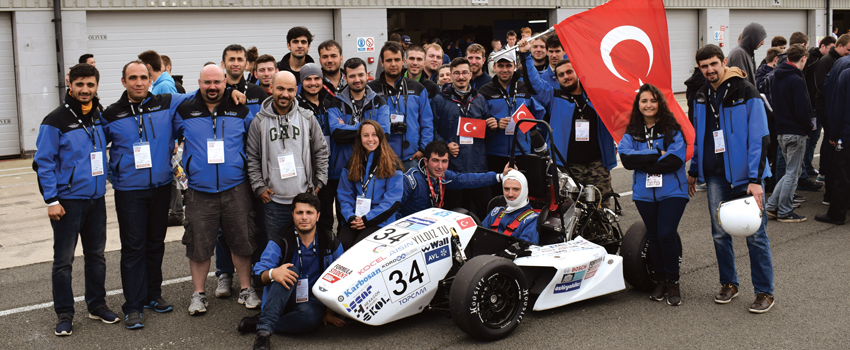Yıldız Technical University - YTU Racing Team

The YTU RACING Team was established to participate in Formula Student, the world’s biggest annual student engineering competition, which helps students transform their theoretical knowledge into practical experience and knowhow. The YTU Racing team is formed of students from Yıldız Technical University, who have been continuing their studies under Kordsa sponsorship since 2015, with guidance provided by instructors from the university’s Automotive Department, Ass. Prof. Alp Tekin ERGENC and Ass. Prof. Orkun OZENER. The YTU Racing Team was established by students from di‑erent university departments, who started to design and build a single-seat, open-wheel racing car in accordance with the concept of Formula Student. The most important point of the competition is “e‑ective design and manufacturing”; and participating students design their car according to cost, manufacturability, maintainability and performance. The YTU team first participated in Formula Student UK with a car codenamed YTR-01, which they entered in the competition’s Class 1 in July 2014. YTR-01 weighed 340kg, highlighting the importance of weight reduction to win the race.
The team decided to establish a composite department after seeing the monocoque chassis and other composite works – such as bodywork, aero package (wings), suspension arms, rims, intake manifolds – used in other teams’ competition entries. YTR-01’s chassis and body weighed nearly 80kg, whereas other Formula Student teams had managed to reduce this to 15-20 kg by using a monocoque chassis. This was an eye-opener for the team, and paved the way for their next models of racing car: the YTR-02 and YTR-03. After a four-month design period, the team manufactured the YTR-02, with which they ranked 57 among 135 teams at the design presentation in July 2015. The team was also selected for the “Most E‑ective Communication Strategy Award” from the Institution of Mechanical Engineers (IMechE). As the lighter design of YTR-2 brought greater success, the team started working on YTR-03 in
August 2015 with the support of Kordsa. Following long and intensive design and production processes, the team produced the car’s chassis, suspension arms, intake and exhaust manifolds, steering parts and seats. Thanks to their structural and flow analysis, the team managed to make YTR-03 lighter than other cars by using carbon fiber in the parts mentioned above and they launched their design at the Naval Museum of Command on 14 June. The team then set themselves a new goal:
‘’Our next goal is to combine the steel chassis and carbon fiber body into one part to make a monocoque chassis. The monocoque structure has much greater design freedom and better packaging, and is five time more rigid and 80% lighter than a steel chassis. We certainly believe that we can reach that goal with the support of Kordsa.’’